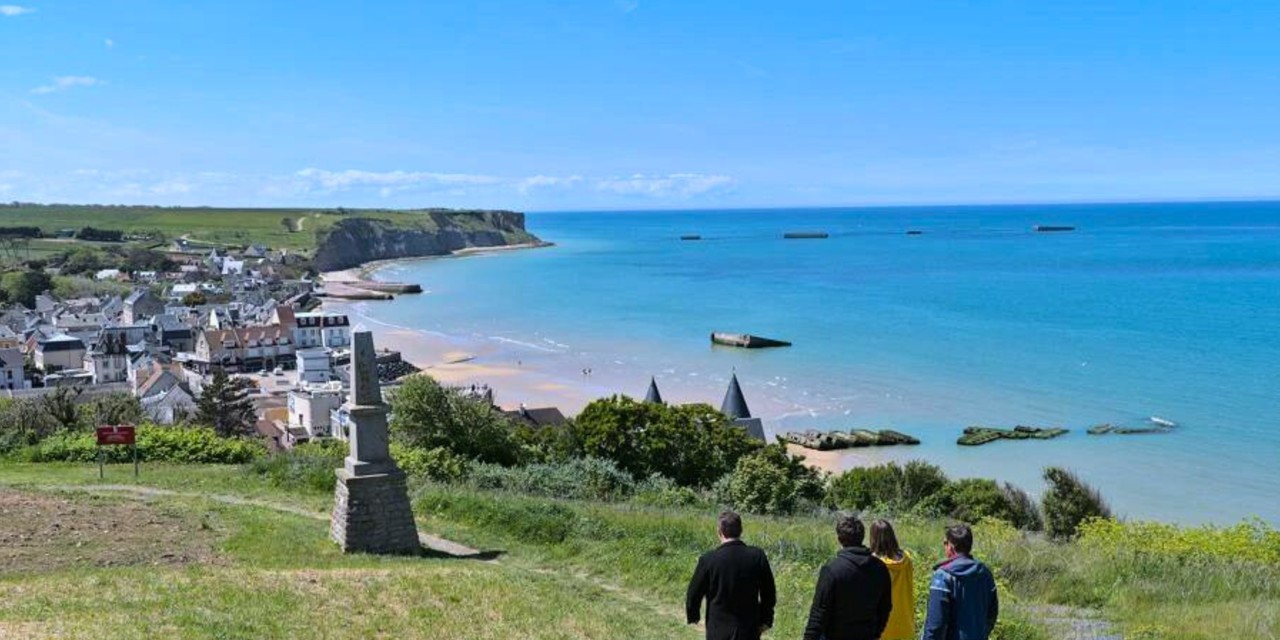Located in the northwest corner of France, Normandy carries a rich WWII history. Since the raid on Dieppe in 1942, through the decisive Allied landings on 6 June 1944, and the fierce Battle of Normandy until August 1944 Normandy's history has been closely touched by the struggle for freedom. Today, its villages and stunning landscapes set the setting for the region's crucial cultural heritage, which resonate beyond France through Europe.
Normandy is an ideal destination for remembrance tourism, attracting millions of visitors annually. The echoes of World War II still resonate here, with the D-Day landings and the Battle of Normandy deeply ingrained in the local heritage. The beaches of Utah, Omaha, Gold, Juno, and Sword serve as living memorials to the human spirit, complemented by numerous memorials, museums, and cemeteries across the landscape. This French region has 94 remembrance sites, including 44 museums. The Normandy American Cemetery and Memorial in Colleville-sur-Mer is a beacon of remembrance, paying tribute to over 9,000 American servicemen who lost their lives here. The Juno Beach Centre in Courseulles-sur-Mer also offers a moving tribute to the Canadian soldiers who fought on D-Day, ensuring that their stories are never forgotten.
Normandy is a popular tourist destination that attracts around 1.78 million unique visitors every year. Over the past two decades, the number of visitors associated with remembrance tourism has doubled, making it an essential factor in the region's economic growth. Through guided tours, educational exhibits, and interactive experiences, travelers can witness the enduring legacy of the region while discovering its other many cultural, natural, and culinary offers.
Since 1945, Normandy has annually commemorated the D-Day landings on June 6th, gaining international importance over the years. Each year, politicians, veterans, and general public from around the world gather on the shores of Normandy to pay their respects to the fallen and to reaffirm the values of freedom and democracy that they fought for.
The commemorations of the D-Day landings can take many forms, from official ceremonies at war cemeteries to lively parades in the towns and villages of Normandy. Hundreds of events are held throughout the region to mark the celebrations of D-Day, which continue through the summer until the end of the Battle of Normandy in August. This has led to the creation of a special festival, the D-Day Festival, which brings together more than a hundred events along the D-Day Landing Beaches for 15 days, showing that the memory of this historic event is still very much alive in Normandy. In addition to remembering the past, these events also provide a chance for reflection, dialogue and reconciliation, bringing together nations that were once enemies in a spirit of cooperation.
As the number of veterans dwindles, preserving their stories has become increasingly crucial for educating future generations. This year, Normandy is set to commemorate the brave soldiers who liberated it in 1944, marking the 80th anniversary with nearly 350 scheduled ceremonies and commemorations, spanning from March 1st to October 15th.
Would you like to find out more about the events in Normandy? Check out Europe Remembers dedicated section.
